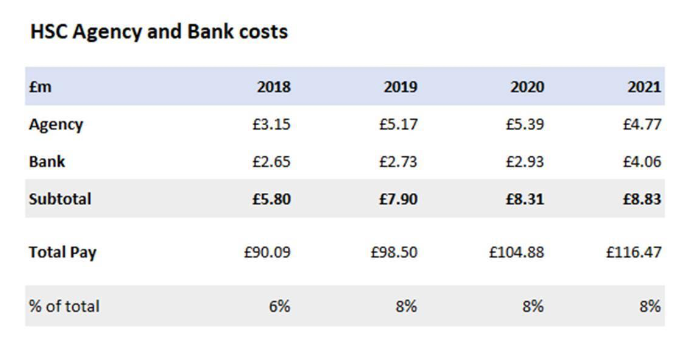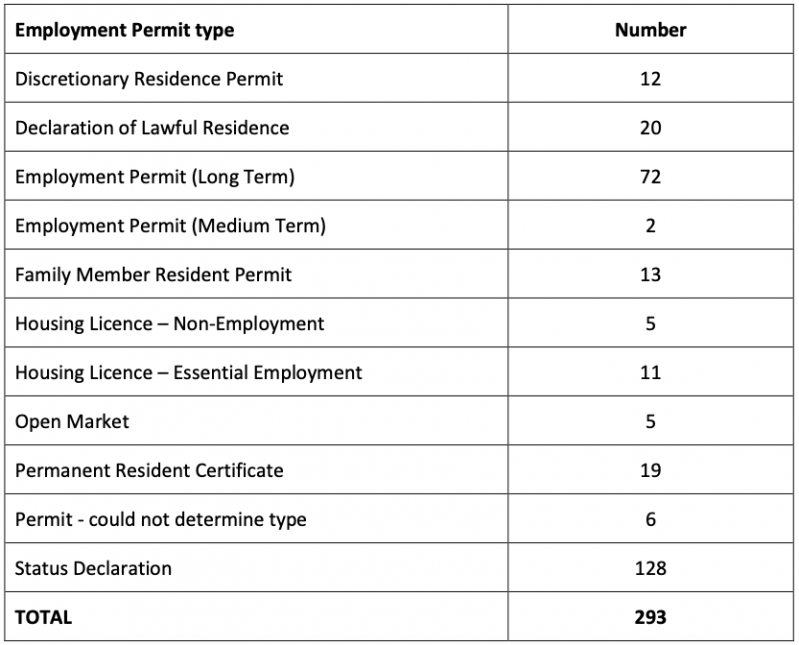


Annual States' expenditure on relocating healthcare staff from off island has increased from £865,000 to more than £2million in the space of just two years.
The Committee for Health & Social Care cite several reasons for the sudden increase in the costs of bringing key workers to the island. They include spiralling rental costs, greater reliance on off-island staff, more successful recruitment drives and an expansion in the type of staff who are eligible for financial support when relocating to the island.
Between June 2017 and June 2021, annual turnover of staff in mental health services varied between 15.6% and 21% and turnover of all HSC staff was between 14% and 20.7%.
The latest figures for the 12 months ending June 2021 are 20.3% and 17.5% respectively.

Pictured: The Committee for Health & Social Care's interview and relocation costs for vacancies in the years 2016-20.
Responding to questions from Express, the Committee for Health & Social Care stressed that the increase in relocation costs could be partly attributed to higher rates of success attracting permanent staff when vacancies arose.
Earlier this year, Paul Whitfield, then States' Chief Executive, told business leaders that some key workers were turning down job offers in Guernsey simply because there was nowhere affordable for them to live.
"The relocation costs are higher partly due to our successful recruitment during the Covid-19 pandemic," said the Committee for Health & Social Care.
"By far the highest cost is rent allowance. Accommodation is at a premium, rents have increased and rent allowance is paid on a scale according to the rent charged.
“In addition, new roles for the autism hub will have added to staff numbers and we are having to recruit from off island for a number of support worker roles which is not something that has been such an issue previously.
“When the Population Management Law came in in 2017, we gained the advantage of permits being offered to unregistered staff, but this means an increase in the number of candidates qualifying for support under the relocation directive.”
Those new staff are now also eligible for a relocation payment of £5,000 paid out by the States to recruits who are renting in the private sector.

Pictured: The costs to the States of bank staff and agency staff in health and social care between 2018 and 2021.
The Committee said that costs for bank staff and agency staff had increased in absolute terms but remained consistent at 8% of total pay costs in 2019, 2020 and 2021 to date.
But the Committee expects the costs of bank staff and agency staff are “likely” to increase in the final quarter of this year due to winter pressures on the health service and forecasts that this will become “more pronounced in early 2022".
“In general terms, recruitment is challenging for HSC, as it is nationally and globally," said the Committee. "Some areas, such as social work, are experiencing national shortages and high vacancy levels with candidates being in high demand due to their skills.
“The position locally is made even more difficult by the lack of rental accommodation and the price of the accommodation that is available.”

Pictured: The island's system of housing licences was replaced by employment and residency permits in 2017. A breakdown of the type of permit issued to staff employed in mental health services is set out above.
Responding to a series of written Rule 14 questions from Deputy Lester Queripel at the beginning of September, the Committee said there were 66 vacant posts in mental health services across community care, inpatient care, primary care and psychiatry.
The President of the Committee, Deputy Al Brouard, said measures were being taken to avoid “undue disruption” to mental health services and that this relied on a combination of staff working overtime and making use of bank staff and agency staff.
Comments
Comments on this story express the views of the commentator only, not Bailiwick Publishing. We are unable to guarantee the accuracy of any of those comments.